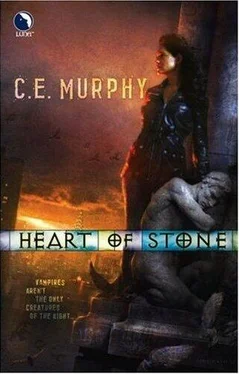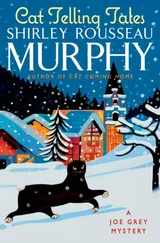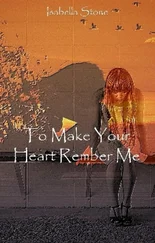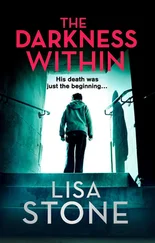“You have a weird definition of all right, Grit.” Cam tightened the hug briefly, then let her go. “All right. Go shower. I’ll fix you breakfast. You look like you need it.”
“Yeah.” Margrit turned her cell phone over, staring thoughtfully at the screen. “Okay.” She clambered to her feet and followed Cam out of the room, earning a raised eyebrow when her friend realized she was being followed.
“Shower that way, Grit. Kitchen this way. Remember?”
“Uh-huh.” She edged past the taller woman to the dining room table and dug her laptop out of a briefcase.
“Margrit, what are you doing?”
“They put the pictures together wrong,” Margrit said absently. “Hang on, I’ll shower in a minute.” She got a cup of yogurt out of the fridge while the computer booted up, and dialed her e-mail address with her cell phone, paying no attention to Cam’s bewildered expression.
“Do you still want breakfast?”
“Breakfast?” Margrit spoke around the spoon, then smiled as Cameron’s question registered. “That’d be great. You just know me and yogurt. Oh, they turned out. Good.”
“What?” Cam came to stand over her, resigned to her behavior.
“The pictures I took at the speakeasy. The windows.” Margrit saved photos from her e-mail to the desktop as she spoke. “They put them together wrong.”
“Stop talking and do your thing here, Grit. You’re not making any sense.”
“Watch.” Margrit amalgamated the three photos, setting different transparencies and adjusting their placement. Cam drew in a sharp breath and leaned down to get a better look at the screen.
“Holy cow. Lookit that.”
“I dreamed the windows got broken and they put them back together wrong,” Margrit said quietly.
Set correctly, the abstract colors of the three speakeasy windows made a whole and complete picture, each photo giving depth and structure to the other layers. Grays no longer made random splotches in the brilliant shades of crimsons and teals; sand dune yellows built clear shapes, none of them complete without the others.
“That looks like a dragon.” Cam pointed to the dominant crimson, coiling around the combined frames into a sinuous whiskered creature of power and grace.
“Gargoyles,” Margrit whispered, touching the grays on the screen. The gargoyle pictured seemed more delicate than Alban, as if it was perhaps female, but the breadth of wing and the comfortable crouch were unmistakable. She traced blues in the picture, picking out the graceful outlines of a half human, half seal creature.
“Mermaids,” Cam offered. Margrit nodded, not wanting to admit how she knew otherwise.
“Like the chess set. There was a set with mermaids and desert creatures in the club.”
Cam traced another shape with her fingernail. “Like this? It’s the right color, all sandy, for the desert. It looks wispy, though. Like a genie. Want to make a wish?”
“I wish I could figure out what the hell was going on,” Margrit said. “And then there’s this.” She touched the one human-looking figure among the others, picked out in blacks, a cloak flaring behind it like the gargoyle’s wings. “I wonder what it is.”
Cam grinned. “Man conquering the monsters, obviously.”
“Obviously.” Margrit slid down in her seat, staring at her screen. Not man, she thought. The fifth figure’s cloak was subtly segmented, more insectoid than Alban’s wings, or the representational gargoyle in the picture.
Five. The Old Races.
Her wish had come true. Staring at the consolidated photographs, Margrit understood at least another part of what was going on. The selkie living in Eliseo Daisani’s building was happenstance, a bonus to gild his real goal with. He didn’t care about destroying a rival member of the Old Races. It was pettiness that drove him, sheer childish pettiness. He was taking the building down in revenge.
Because Grace O’Malley had discovered and exposed his hidden speakeasy.
Margrit stood on the spot Her Majesty Queen Elizabeth II had stood upon the occasion of her visit in 1976. Tourists and congregation members came and went, never leaving the Trinity courtyard quiet. The noon service had become a two o’clock tour, and there hadn’t been a long enough break in activity for Margrit to make a dash to Alban’s hidden chamber. Not so hidden anymore; the door was closed, but yellow police tape cordoned off that corner of the church, warning Do Not Cross.
Frustration had driven her to come lurk around his daytime refuge. Even if he wouldn’t be awake-or there, for that matter; he was unlikely to have snuck across police lines just before sunrise-it was possible she might find a hint somewhere in his room as to where he might be when his first home was compromised. Maybe nowhere, maybe hidden on a rooftop somewhere. The memory of his headlong flight into sunrise sent a wave of worry sweeping through her. He’d risked too much by being with her. Risked exposure.
Risked more than that. Risked exile, for telling her the Old Races existed. Though he was outcast already, according to Cara. Not, Margrit thought, the most reliable source of information, if her own people were considered anathema among the Old Races. But the selkie girl had been as casually dismissive of Alban’s status as she’d implied others might be of hers.
It was a topic that could wait. Would have to wait. Margrit bounced on her toes again, impatient with the need to deduce where Alban might have hidden. The room he’d brought her to when the car had nearly hit her, maybe; even now she couldn’t clearly remember where it had been. That she’d been almost too dizzy to walk when she’d left seemed irrelevant.
It was also unavoidable. She rocked back on her heels, glaring futilely around at the congregation. If she could get into Alban’s chamber, it’d be the work of a few minutes to look, and then she could use up some of the energy building in her by running to the new location. Alban still wouldn’t be awake, but at least it would be action. Forward motion. Margrit felt as if she hadn’t moved forward in days. She knew intellectually that she was wrong. New information kept coming to light, but for a woman whose greatest joy was plunging headlong through park pathways at an all-out run, inching toward resolution felt irritatingly slow.
A smile flashed over her mouth as she recalled Luka Johnson’s disbelieving joy at clemency being granted. There was something to be said for the snail’s pace, even if Margrit preferred the hundred yard dash. She just had to keep that in mind.
“May I help you?” someone asked at her elbow. Margrit jumped off the plaque guiltily and shook her head.
“No, I’m just-” She broke off to gape at her questioner, whose beard was as erratic in daylight as it had been the night before.
“Just waiting for an opportunity to slip into the bowels of our church?” he asked with the slightest of smiles.
Caught, Margrit gaped another moment, then ducked her head. “Something like that.”
He nodded, then tilted his head in an invitation to walk, waiting until they were away from the church to say, “I had an active imagination as a child. I loved the idea of good conquering evil, of God conquering the devil. I thought churches were more than just houses of worship. I imagined them as so strong in faith that they might pin down dragons and demons, evil captured and imprisoned by goodness. I grew up in this parish. Trinity was my church. It was stained black, you know. From the pollution. I thought it was from the evil it kept from the world, that it had become tarnished in order to protect its people. I heard my calling and spent years abroad, all around the country and the world, until I finally came home to New York and to Trinity.” He paused, turning back to look up at the graying sandstone. “They cleaned it while I was gone. My black, Gothic church proved to be pink.”
Читать дальше
Конец ознакомительного отрывка
Купить книгу












